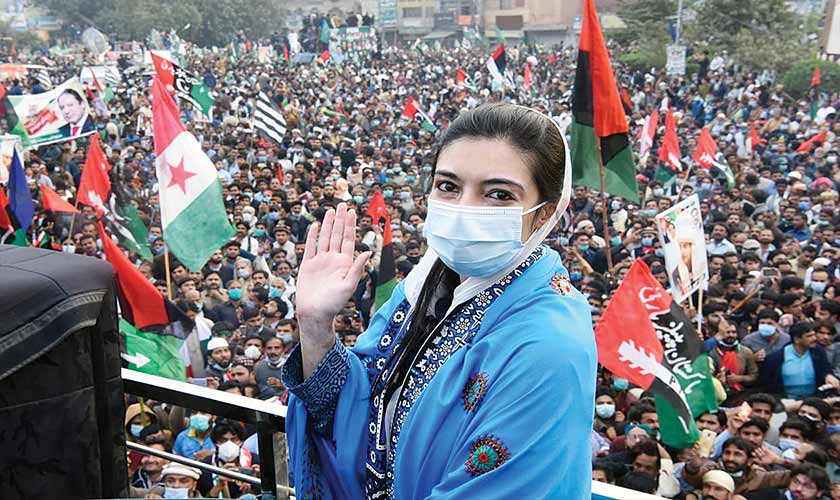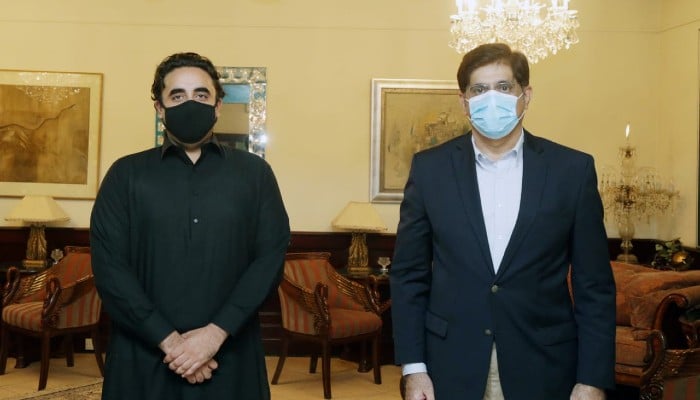M WAQAR..... "A man's ethical behavior should be based effectually on sympathy, education, and social ties; no religious basis is necessary.Man would indeed be in a poor way if he had to be restrained by fear of punishment and hope of reward after death." --Albert Einstein !!! NEWS,ARTICLES,EDITORIALS,MUSIC... Ze chi pe mayeen yum da agha pukhtunistan de.....(Liberal,Progressive,Secular World.)''Secularism is not against religion; it is the message of humanity.'' تل ده وی پثتونستآن
Monday, December 7, 2020
Howard Stern: Trump’s COVID-19 handling is ‘treasonous’
Brian Niemietz
Shock jock Howard Stern notched up his war of words on President Trump — a former regular on his show — by accusing the lame duck leader of criminal behavior against his country.The charge came Monday when a man identifying himself as a doctor in Cleveland, Ohio called Stern’s radio show to describe the “hell” he was experiencing because patients flooding hospitals remain ignorant, or even skeptical, about the dangers of COVID-19. That caller also worried that health care workers, the first line of defense, are being taken out of the fight either by infection or exhaustion. Stern blasted the president for focusing his energy on trying to overturn the election he lost last month rather than addressing the spreading pandemic that has killed more than 280,000 Americans this year and is getting worse. Howard Stern doesn’t want to hear from 'stupid’ friends who support Trump “This is treasonous, what’s going on right now, telling people to run around, go to rallies...” Stern said, before his sidekick Robyn Quivers, a former nurse, pulled him back a bit. “Well it may not be treasonous, but it certainly is criminal,” Quivers interrupted. “Well...” Stern agreed. “It certainly is.” When Stern’s Monday show ended at 11 a.m., the president had tweeted twice about losing the election, which he claims without evidence was rigged. He had not addressed the pandemic. Other than mentioning Sunday night that his personal attorney Rudy Giuliani had tested positive for COVID-19, the president has largely ignored COVID-19 on his busy Twitter feed. Giuliani is leading Trump’s efforts to keep the president in office. Trump was in Georgia over the weekend hosting a crowded rally of largely mask-less followers where he continued promoting seemingly baseless conspiracy theories about election fraud while encouraging Georgians to vote for Republican candidates on the ballot in that state’s senatorial elections. “You’ve got a guy in charge who doesn’t know about hard work,” Stern said. “Let’s face it.” Stern’s caller agreed the president “has no clue,” which prompted the 66-year-old radio icon to wonder how long medical workers can withstand the onslaught they’re seeing. “The doctors are going to start saying to themselves ‘If the president doesn’t care and the government doesn’t care, what the f--k am I going to be doing?’” Donald Trump is the virus: His coronavirus response confirms how toxic he is for the country Stern, who says he’s contemplating retirement when his contract expires at the end of the month, marveled over the fact the president isn’t telling his devotees to protect others by wearings masks. “I’ve never seen a country more poorly run than this one,” he said. “It’s a disgrace.” Stern said that as a kid, he and his mother would see footage of American soldiers dying in Vietnam on the news, which promoted his mom to insist her son would never fight in that war. He told his caller that it’d be a good idea to have news cameras in intensive care units. “They should follow you with a camera every night on the news, watching people die of COVID, watch them choking...” Stern said. “I wish they’d show that on the news.” https://www.msn.com/en-us/news/politics/howard-stern-trump-s-covid-19-handling-is-treasonous/ar-BB1bI5lG?ocid=msedgdhp
Plot twist: Aseefa debuts in PDM’s Multan rally, her mannerism reminiscent of Benazir Bhutto
Nadeem ShahAseefa debuts in PDM’s Multan rally, her mannerism reminiscent of Benazir Bhutto. Despite blockades and arrests, crowds gather.
The Pakistan Democratic Movement rally in Multan appeared different from the four rallies that have been held in Karachi, Quetta, Gujranwala and Peshawar. The PDM held the rally at Chowk Ghanta Ghar despite the blocking of all roads with containers and barriers on all chowks and major roads leading to the meeting place, Qila Kohna Qasim Bagh.
Four dozen PPP workers were arrested and handcuffed including Syed Abdul Qadir Gillani, Syed Ali Musa Gillani, Syed Ali Qasim Gillani and MPA Syed Ali Haider Gillani, sons of the former PM Syed Yousaf Raza Gillani. The police manhandled Syed Ali Qasim Gillani, one of the organisers of PDM meeting, and slapped and punched him.
Purani Kotwali police have also registered a case (No. 690/20) against 2,500-3,000 PDM workers including PML-N ex-MPA Shahid Khan, ex-MNAs Sheikh Tariq Rashid, and Malik Abdul Ghafar Dogar and the latter’s son Waqar Dogar, among others. The FIR includes anti-terrorism sections.
The Lohari Gate police have registered two FIRs against 80 identified and 800 unidentified workers under Sections 353/156, 379/506, 427/148 and 149 of Pakistan Penal Code besides Section 17 of the Punjab Infectious Diseases (Prevention and Control) Ordinance 2020. The FIRs allege that activists “armed with clubs” “damaged the barriers and fence installed to control the law and order situation” and “attacked the police”.
The administration started removing the barriers from the routes when two big rallies led separately by Aseefa Bhutto Zardari and Maulana Fazlur Rehman came out in full force. The former started from former prime minister Syed Yousaf Raza Gillani’s residence and the latter from Gulgasht seminary Jamia Qasimul Aloom. The mammoth rallies were a test of nerves for the administration, which had completely sealed the Gillani House by placing containers on both sides of the road a day earlier. Power supply to the Gillani House was also disconnected.
The containers were removed from Gillani House when the rally advanced towards the meeting venue. The printing presses and panaflex printers had signed surety bonds that would not print any PDM material.
The rally marked the political debut of Aseefa Bhutto. Already, Maryam Nawaz has gained trust and popularity as the face of the PML-N.
Political workers are of the view that this heralds a new beginning for women’s leadership in the PPP and the PML-N. They say that this signals a commitment by both to break the patriarchal structure, strengthening the struggle for the restoration of human rights, weakening the forces of obscurantism and chauvinism, and resisting the fragmentation of society.
Aseefa Bhutto’s speech, oratorial skills, gestures and body language – moving arms and waving hands brought back memories of Benazir Bhutto for the PPP workers.
“[It seems that] Shaheed Benazir Bhutto has returned! I’m stunned to hear Aseefa Bhutto live (in a gathering of the Pakistan Democratic Movement) for the first time in my political career. Aseefa Bhutto looks like a stateswoman, like her mother, highly confident, passionate, with a powerful Urdu accent”, observes Abida Bokhari.
Bokhari is heading Pakistan Peoples Party Multan chapter of women, and joined the PDM rally with a large procession of PPP women activists to celebrate PPP’s 53rd birthday at Chowk Ghanta Ghar.
“[It seems that] Shaheed Benazir Bhutto has returned! I’m stunned to hear Aseefa Bhutto live,” says Abida Bokhari.
She says that Aseefa has stayed true to the Bhutto tradition. Like Benazir Bhutto who had emerged as a hope in the society where the draconian Zia martial law consigned women to chadar and char deewari in 1979 and inducted restrictive ordinances, which increased the marginalisation of this 50 percent of the population.”
“Shaheed Benazir Bhutto and PPP founder Shaheed Zulfikar Ali Bhutto had a special place in their hearts for the Seraiki people”, said Aseefa in her short address in the PDM rally.
Maryam Nawaz, the PML-N vice president, alleged that Prime Minister Imran Khan had “received foreign funding”, “built offshore companies”, and “given NRO to mafias to rob the public”.
“Aleema Baji (Imran Khan’s sister)”, she said in her scathing criticism of the PTI’s narrative, “has earned billions of rupees from sewing machines but Imran Khan is honest”.
Speaking at the huge gathering, the PDM chief, Maulana Fazalur Rehman said the PTI government “had invited an early countdown” to “pack up selected rulers” in the wake of the “ruthless crackdown on PDM workers in Multan”.
Akhtar Mengal of the Balochistan National Party (BNP) said that “the military regime should first take off their uniform and then participate in politics”.
Pakhtunkhwa Milli Awami Party’s Mehmood Khan Achakzai said that the PDM was “not formed to speak against anyone”.
“The prime objective”, he said, “is to stop intelligence agencies and armed forces from interfering in politics.”
He warned that “dangerous blocs” were being created around Pakistan.
“The country may be bombed by foreign forces just as an Iranian scientist and a military general have been slain,” he said.
“The solution”, he continued, “was that the incumbent assembly be dissolved”.
The pressure is building. With new political actors emerging on the scene, the government has its work cut out. The PDM Islamabad Long March schedule has been changed, and now it is expected to begin soon after the Lahore rally instead of January 2021.
Why Pakistan will be next to normalize with Israel
By FM SHAKIL
What PM Imran Khan and Hamza Ali Abbasi got wrong about family values in Pakistan
Twitter user Sundus Saleemi hit the nail on the head with this thread:
Many others chimed in, reminding Khan about all those marginalised by our so-called family system:
Here's hoping that those in charge of policy making, such as Khan, stop living in denial about what our culture has come to entail and start calling a spade a spade. Blaming the west for everything wrong in our own backyard won't do us any favours.
https://images.dawn.com/news/1186134/what-pm-imran-khan-and-hamza-ali-abbasi-got-wrong-about-family-values-in-pakistan
Chief Minister, Sindh Murad Ali Shah called on the Chairman PPP Bilawal Bhutto Zardari at Bilawal House on Monday
Chief Minister, Sindh Murad Ali Shah called on the Chairman Pakistan Peoples Party Bilawal Bhutto Zardari at Bilawal House on Monday.Chief Minister briefed the Party Chairman about the COVID-19 situation and the steps taken by Sindh government to protect the people.
Murad Ali Shah informed the Chairman Bilawal Bhutto Zardari about the development pace in the province, which is hampered by the lesser payments from the Federal government than the province’s due share. He said that Sindh government has surpassed its own tax collection targets so far.
On the occasion, the Chairman PPP asked the Sindh government to start recruitment on the vacant jobs on merit for relief to the unemployed youth and utilization of their potential for the province. He also stressed that more employment opportunities may also be created in the private sector as well.
It may be recalled that both the Chairman PPP and the Chief Minister, Sindh’s COVID-19 tests were found negative following isolation and earlier positive results.





